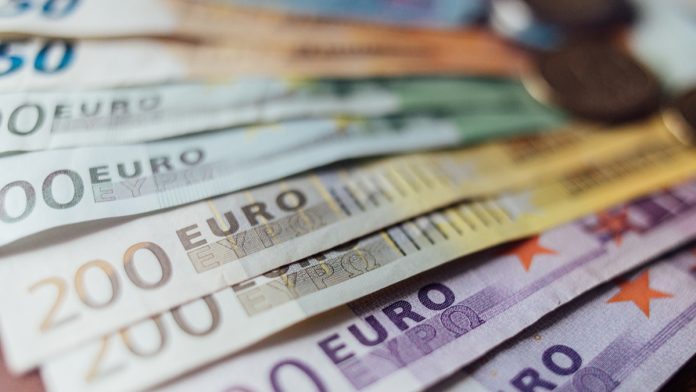The euro US dollar exchange rate closed flat on Wednesday. The pair closed at US$1.1085. This was approximately the same level that it had started Wednesday’s session at. The euro is advancing versus the dollar in early trade on Thursday.
| What do these figures mean? |
| When measuring the value of a pair of currencies, one set equals 1 unit and the other shows the current equivalent. As the market moves, the amount will vary from minute to minute.
For example, it could be written: 1 EUR = 1.12829 USD Here, €1 is equivalent to approximately $1.13. This specifically measures the euro’s worth against the dollar. If the U.S. dollar amount increases in this pairing, it’s positive for the euro. Or, if you were looking at it the other way around: 1 USD = 0.88789 EUR In this example, $1 is equivalent to approximately €0.89. This measures the U.S. dollar’s worth versus the euro. If the euro number gets larger, it’s good news for the dollar. |
Euro investors reacted to Italian political news in the previous session. After tense negotiations the 5 Star Movement and the centre left Democratic Party agreed to form a coalition. The new coalition comes following the collapse of the previous coalition last week. This means that Italy will avoid a problematic Autumn election. It also means that the League’s Matteo Salvini will remain out of power a while longer. Polls had indicated that Matteo Salvini was well ahead should there be an election. The avoidance of an election is good news for the euro, given Salvini’s plans to spend heavily regardless of Italy’s soaring debt piles.
Today euro investors will be switching their attention back to Germany and growing fears that Europe’s largest economy is heading for a recession. Analysts expect German unemployment figures to show that unemployment remains steady at 5%.
The euro may come under pressure following the release of German inflation figures. Analysts are predicting German inflation will decline to 1.5% year on year in August, down from 1.7% the previous month. Weak inflation could encourage the European Central Bank to cut interest rates when they meet in September.
| Why do interest rate cuts drag on a currency’s value? |
| Interest rates are key to understanding exchange rate movements. Those who have large sums of money to invest want the highest return on their investments. Lower interest rate environments tend to offer lower yields. So, if the interest rate or at least the interest rate expectation of a country is relatively lower compared to another, then foreign investors look to pull their capital out and invest elsewhere. Large corporations and investors sell out of local currency to invest elsewhere. More local currency is available as the demand of that currency declines, dragging the value lower. |
US GDP Data To Dip 0.1%?
The dollar has risen across the past few months boosted by its safe haven appeal amid the recent escalations of the US — Sino trade war. The next round of tariffs is due to take effect from 1st September. Furthermore, there is no clear plan for next steps in negotiations, as a result investor are looking to buy into safe havens, such as the dollar for protection from uncertainty.
Today the US GDP reading will be in focus. Analysts are expecting economic growth to have dipped 0.1% to 2%. The dominant consumer sector remains solid and the labour market strong, therefore the slump in the manufacturing sector owing to the trade war is not expected to cause a significant decline in US economic growth. Should the GDP drop by more than forecast, the dollar could drop.
| Why does poor economic data drag on a country’s currency? |
| Slowing economic indicators point to a slowing economy. Weak economies have weaker currencies because institutions look to reduce investments in countries where growth prospects are low and then transfer money to countries with higher growth prospects. These institutions sell out of their investment and the local currency, thus increasing supply of the currency and pushing down the money’s worth. So, when a country or region has poor economic news, the value of the currency tends to fall. |
Currencylive.com is a site operated by TransferWise Inc. (“We”, “Us”), a Delaware Corporation.
The content on our site is provided for general information only. It is not intended to amount to advice on which you should rely. You must obtain professional or specialist advice before taking, or retain from, any action on the basis of the content on our site.
Although we make reasonable efforts to update the information on our site, we make no representations, warranties or guarantees, whether express or implied, that the content on our site is accurate, complete or up to date. Some of the content posted on this site has been commissioned by Us, but is the work of independent contractors. These contractors are not employees, workers, agents or partners of TransferWise and they do not hold themselves out as one. The information and content posted by these independent contractors have not been verified or approved by Us. The views expressed by these independent contractors on currencylive.com do not represent our views.





